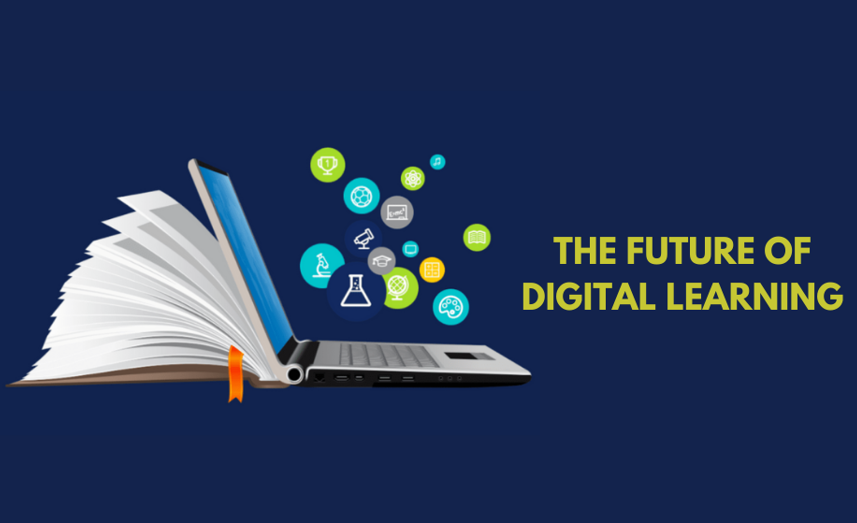In today’s rapidly advancing world, online learning has emerged as a cornerstone of modern education. No longer confined to traditional classrooms, students and professionals alike are embracing digital platforms for acquiring knowledge and skills. The rise of online learning, spurred by technological advancements and changing societal needs, has made education more accessible, flexible, and diverse. This article delves into the impact, benefits, and challenges of online learning, emphasizing its role in transforming education for millions worldwide.
The Growth of Online Learning
Online learning, also known as e-learning or distance education, has experienced exponential growth over the past decade. What was once a niche method of instruction has now become a mainstream educational tool, thanks in large part to improvements in internet connectivity, the proliferation of smartphones, and the increasing demand for flexible learning solutions. The COVID-19 pandemic further accelerated this trend, pushing educational institutions and businesses to adapt to remote learning on an unprecedented scale.
With platforms like Coursera, Udemy, Khan Academy, and many others, learners now have access to an abundance of courses, ranging from academic subjects to practical skills. Whether it’s acquiring new software skills, mastering a language, or delving into advanced topics like artificial intelligence, learners can find resources tailored to their needs at their own pace.
Flexibility and Accessibility
One of the most significant advantages of online learning is the flexibility it offers. Unlike traditional education, which typically requires learners to follow a rigid schedule, online courses allow participants to study at their own convenience. This is particularly beneficial for working professionals, parents, or individuals with other responsibilities who cannot commit to full-time, on-campus programs. Students can access materials and complete coursework at any time, creating an environment that accommodates diverse schedules and learning paces.
Moreover, online learning breaks down geographical barriers. Students from remote areas or those living in countries with limited educational opportunities can access top-tier institutions and expert instructors. This democratization of education ensures that quality learning is no longer restricted to the privileged few but is available to anyone with an internet connection.
Personalized Learning Experience
Online learning platforms provide a highly personalized educational experience. Through the use of algorithms and data analytics, many platforms tailor course recommendations, materials, and even learning paths to individual needs. This level of customization enables learners to focus on areas where they need improvement and allows for more effective mastery of subjects.
Interactive elements, such as quizzes, forums, and real-time feedback, further enhance engagement, helping students retain knowledge more effectively. Additionally, the ability to review lectures and materials multiple times ensures that learners can reinforce their understanding at their own pace.
Cost-Effectiveness
Online learning is also more cost-effective than traditional education. Without the need for physical infrastructure, such as classrooms and facilities, institutions can offer courses at significantly lower prices. Learners save on commuting, accommodation, and textbooks, making online education an affordable alternative for many.
Furthermore, there are numerous free resources available online, offering basic to advanced-level courses. This affordability makes education more inclusive, particularly for individuals from low-income backgrounds who might not have access to traditional learning environments.
Challenges of Online Learning
Despite its many advantages, online learning is not without its challenges. One of the most significant hurdles is maintaining discipline and motivation. The flexibility of online courses, while beneficial, also requires a high level of self-discipline. Without the structure of a traditional classroom and the presence of instructors or peers, some learners may struggle to stay on track.
Another challenge is the lack of face-to-face interaction. For many students, the absence of in-person communication with teachers and classmates can lead to feelings of isolation. This can affect the learning process, as collaboration and discussion often enhance understanding. However, many platforms are addressing this issue by incorporating video conferencing, discussion forums, and group projects to facilitate interaction.
Additionally, online learning relies heavily on technology, and this can be a barrier for some learners, particularly in regions with poor internet connectivity or limited access to digital devices. Bridging this digital divide remains a critical challenge to ensuring that online education is truly accessible to all.
The Future of Online Learning
As technology continues to evolve, so too will the capabilities and reach of online learning. Artificial intelligence, virtual reality, and augmented reality are poised to make online education more immersive and interactive, simulating real-world environments for fields such as medicine, engineering, and the arts. Furthermore, online learning platforms are increasingly partnering with universities and employers to offer recognized certifications and degrees, further blurring the lines between traditional and digital education.
In conclusion, online learning has revolutionized the way education is delivered and received, making it more accessible, flexible, and affordable. While challenges remain, the continued advancements in technology and the increasing acceptance of online qualifications indicate that e-learning will play an even more prominent role in the future of education. As the world becomes more interconnected and technology-driven, online learning offers a powerful tool to ensure that knowledge is within reach of everyone, regardless of their circumstances.
